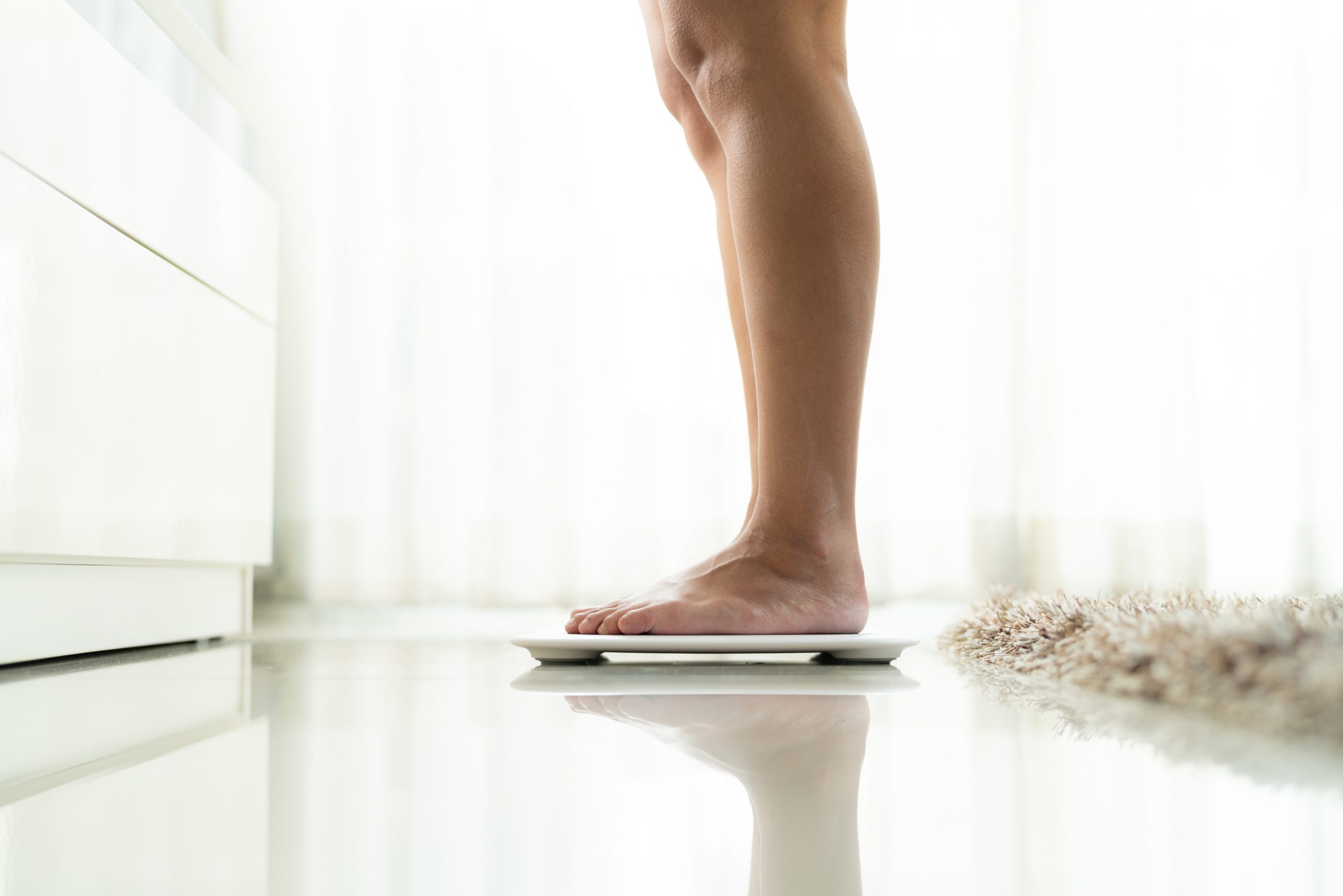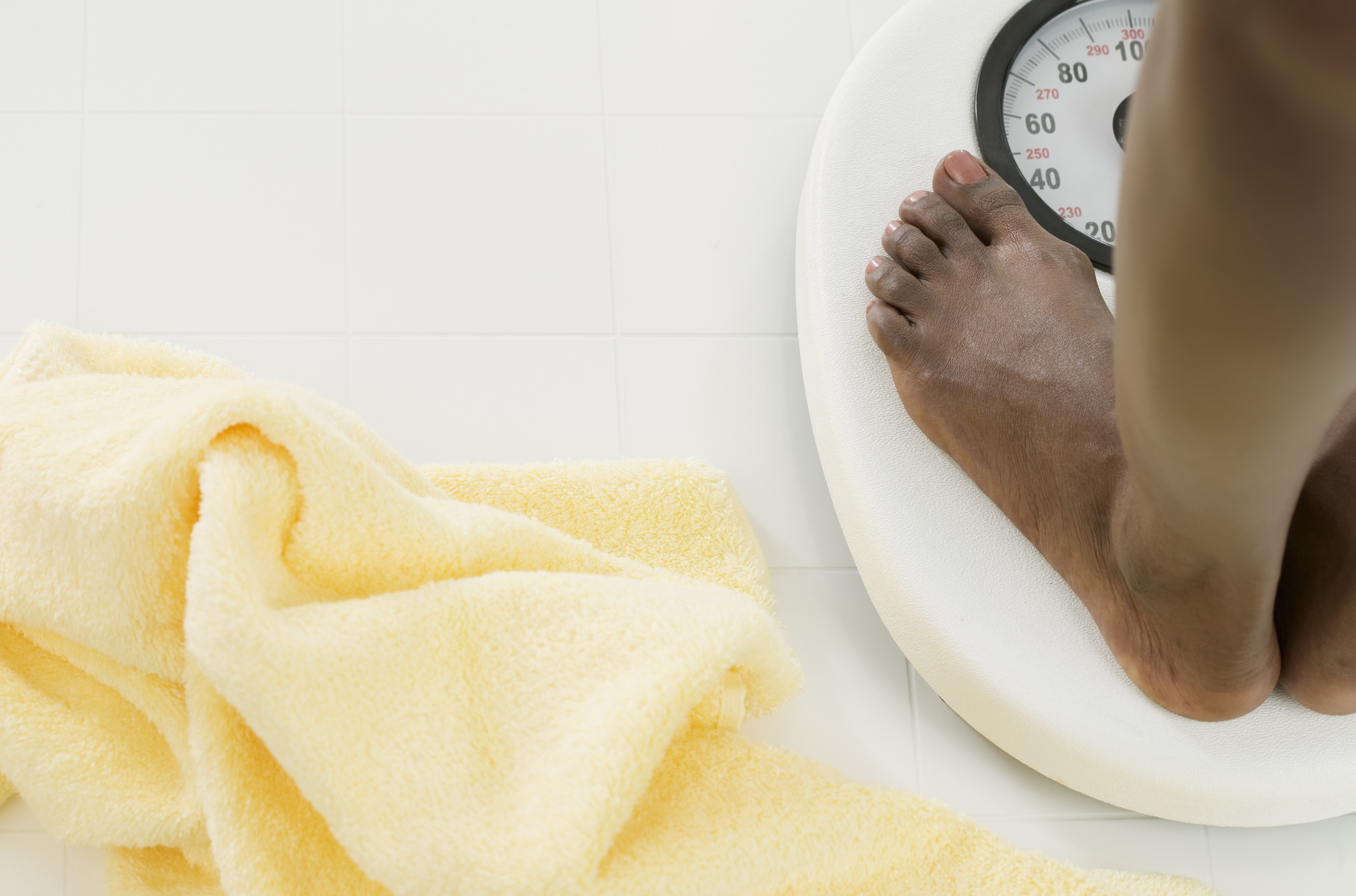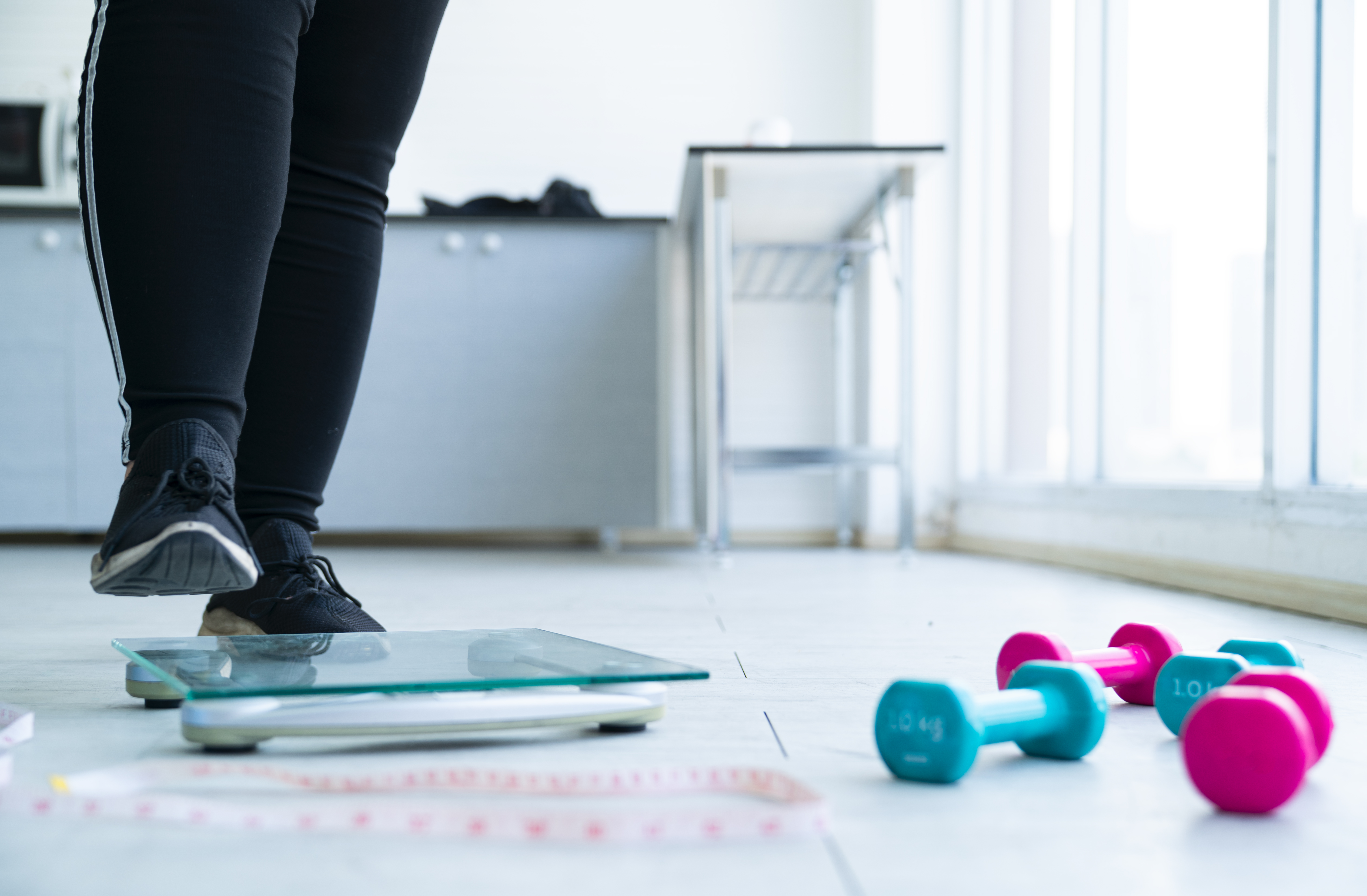When is the best time to weigh yourself? Tips for tracking your weight


Knowing the best time to weigh yourself can help give more accurate scale readings, which is helpful if you are tracking your weight.
Be it an active effort to record your weight loss results, monitor your progress in tackling lockdown weight gain or a way of staying on top of general weight gain, scales give us a quick reading of our current weight. However, factors like timing and water retention can often affect the accuracy of the result shown on the scales.
With this in mind, we asked health professionals for their advice on the best time to weigh yourself. And what we learnt might surprise you:
When is the best time to weigh yourself to get your true weight?
The general consensus is that the best time to weigh yourself is at the start of the day before eating breakfast.
"The best time to weigh yourself is first thing in the morning before you’ve eaten or exercised," says Dr Chun Tang a GP at Pall Mall Medical. "This is simply because you will weigh more after eating and will weigh less after exercising and sweating a lot. Therefore, first thing in the morning will be the most accurate."

Tash Lankester, a personal trainer at FLEX Chelsea agrees that weighing yourself after you wake-up and before food or drink will "give you the most accurate reading."
"However the most important thing here is consistency," she tells us. "So for example if you can only weigh yourself in the evening, just make sure you are doing it at the same time, same place, same variables to get the most accurate reading possible."
Parenting advice, hot topics, best buys and family finance tips delivered straight to your inbox.
How much does your weight fluctuate in a day?
Weight fluctuation is a normal process that our bodies experience every day after food and drink. It is therefore imperative to realise that this is a completely natural body process and to not be disheartened by scale readings.
"Weight can fluctuate hugely in a day," says Tash. "Think about how much food and water weighs. Once we ingest this it contributes straight to our weight, but it's important to realise that this is not fat."
Both experts state that weight fluctuation is often the result of water retention. And this can be affected by factors like exercise and the type of foods we eat.
"Fluctuation during the day is normal and some people can find a 5-6 pounds difference depending on what sort of lifestyle they lead," Dr Tang tells us. "This sort of weight gain or loss is usually down to liquid.

"If you undertake a strenuous form of exercise, you will lose more liquid in sweat than you’re able to drink and will find that you lose a lot of weight if you weigh yourself immediately before and immediately after the activity."
Dr Tang also states that salty foods "make your body retain water" and so if you weigh yourself after indulging in sodium-rich foods like unhealthy takeaways then the weight on the scales isn't necessarily accurate.
"This is why it is important to have the scales as only one form of data collection and to not get too attached to them. Just using the scales is not an accurate representation of your weight loss journey," explains personal trainer Tash.
"Track pictures, calories, steps, water intake, mood etc all alongside tracking your weight."
Top tips for accurate weight tracking
- Weigh yourself at the same time every day. Ideally this would be in the morning, which is the best time to weigh yourself. But if this doesn't suit you, then find a moment that works best for you.
- Work out your average weight from readings taken over the whole week. This will be more accurate than weighing yourself once a week.
- Use the same set of scales to weigh yourself as they can sometimes be inaccurate.
- Place the scales on a hard flooring and ensure the batteries are full. Scales tend to give inaccurate results as the batteries go flat.
- Weigh yourself naked or always wear the same clothes when you weigh yourself. Wearing jeans and a hoodie is going to add a few extra pounds onto your weight than if you weigh yourself naked.
- Use an app to measure your results each day so you can keep track of your progress.
Personal trainer Tash also stresses that the scales aren't for everyone and that you should listen to yourself and your body.
"It is important to note that if you do feel you become too emotionally attached to the scale, throw it out," she tells us. "There are so many other ways to track your progress. Progress pictures being a really good way, or just how you are feeling and how your clothes are fitting."

Emily Stedman is the former Features Editor for GoodTo covering all things TV, entertainment, royal, lifestyle, health and wellbeing. Boasting an encyclopaedic knowledge on all things TV, celebrity and royals, career highlights include working at HELLO! Magazine and as a royal researcher to Diana biographer Andrew Morton on his book Meghan: A Hollywood Princess. In her spare time, Emily can be found eating her way around London, swimming at her local Lido or curled up on the sofa binging the next best Netflix show.